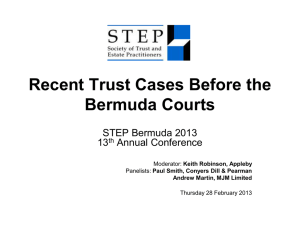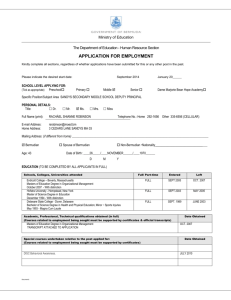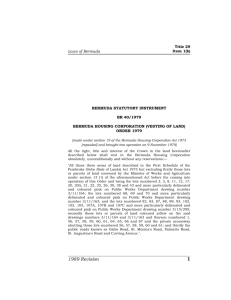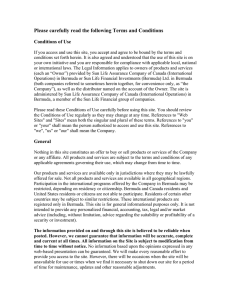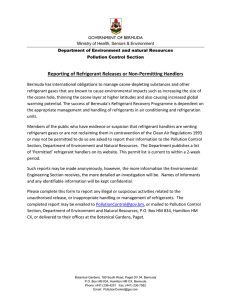Replacing Bad Teachers with Good In the Bermuda public school
advertisement
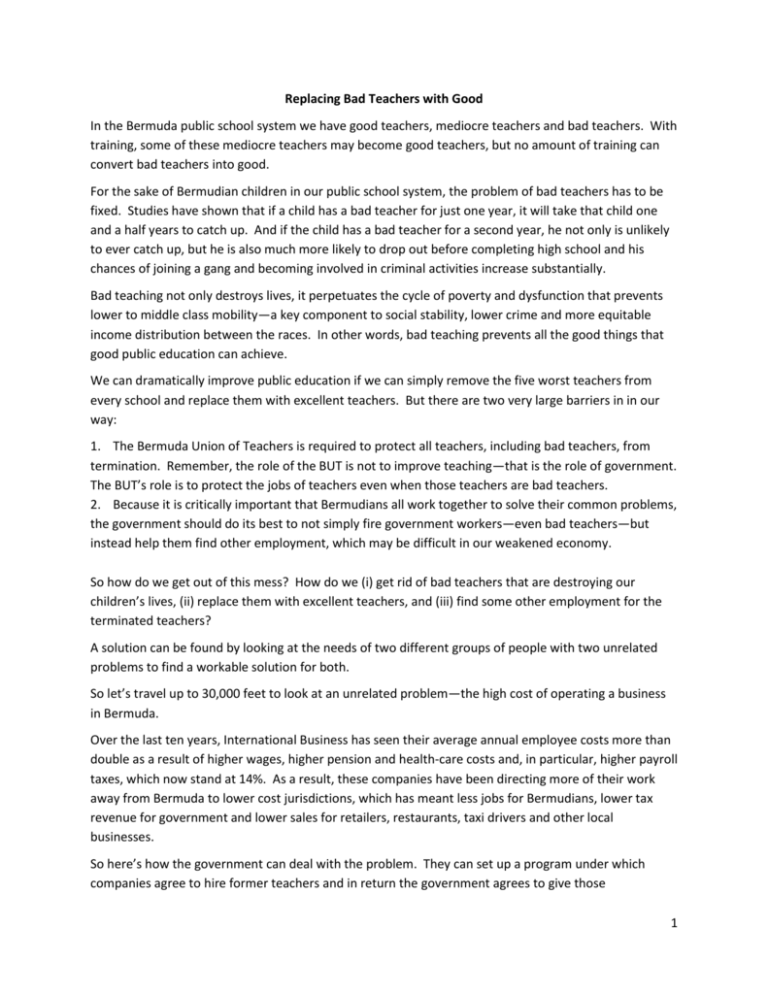
Replacing Bad Teachers with Good In the Bermuda public school system we have good teachers, mediocre teachers and bad teachers. With training, some of these mediocre teachers may become good teachers, but no amount of training can convert bad teachers into good. For the sake of Bermudian children in our public school system, the problem of bad teachers has to be fixed. Studies have shown that if a child has a bad teacher for just one year, it will take that child one and a half years to catch up. And if the child has a bad teacher for a second year, he not only is unlikely to ever catch up, but he is also much more likely to drop out before completing high school and his chances of joining a gang and becoming involved in criminal activities increase substantially. Bad teaching not only destroys lives, it perpetuates the cycle of poverty and dysfunction that prevents lower to middle class mobility—a key component to social stability, lower crime and more equitable income distribution between the races. In other words, bad teaching prevents all the good things that good public education can achieve. We can dramatically improve public education if we can simply remove the five worst teachers from every school and replace them with excellent teachers. But there are two very large barriers in in our way: 1. The Bermuda Union of Teachers is required to protect all teachers, including bad teachers, from termination. Remember, the role of the BUT is not to improve teaching—that is the role of government. The BUT’s role is to protect the jobs of teachers even when those teachers are bad teachers. 2. Because it is critically important that Bermudians all work together to solve their common problems, the government should do its best to not simply fire government workers—even bad teachers—but instead help them find other employment, which may be difficult in our weakened economy. So how do we get out of this mess? How do we (i) get rid of bad teachers that are destroying our children’s lives, (ii) replace them with excellent teachers, and (iii) find some other employment for the terminated teachers? A solution can be found by looking at the needs of two different groups of people with two unrelated problems to find a workable solution for both. So let’s travel up to 30,000 feet to look at an unrelated problem—the high cost of operating a business in Bermuda. Over the last ten years, International Business has seen their average annual employee costs more than double as a result of higher wages, higher pension and health-care costs and, in particular, higher payroll taxes, which now stand at 14%. As a result, these companies have been directing more of their work away from Bermuda to lower cost jurisdictions, which has meant less jobs for Bermudians, lower tax revenue for government and lower sales for retailers, restaurants, taxi drivers and other local businesses. So here’s how the government can deal with the problem. They can set up a program under which companies agree to hire former teachers and in return the government agrees to give those 1 participating companies a reduction in their payroll tax. The exact amount of the reduction will depend on the number of ex-teachers a company hires and the additional terms of the program can be negotiated between government and the business sector, but might look something like the following. For every teacher a company hires, it can be exempt from paying payroll tax for an amount equal to double his applicable payroll tax, effectively making both the ex-teacher and another employee exempt. The teacher will be paid at his former teacher’s wage and will be trained on the job for two years. At the end of two years’ probation, the employer can then decide whether to continue his employment permanently. Under such a structure, ex-teachers who are offered continued employment will have the opportunity to possibly make far more than they ever could as teachers. Keep in mind that even though someone is a bad teacher doesn’t mean he will be bad at his new job in business. Many of these teachers have Masters Degrees and PHDs and may shine at jobs that require a different skillset than classroom management. Some of these bad teachers may need a nudge out the door. This might be done by announcing that government will start publishing the assessment scores that teachers receive each year. Let’s face it, parents should have the right to know if their children are about to be subjected to a year of bad teaching that may ruin their lives. By addressing the needs of two key parts of Bermuda society—Business and Education—we can develop policies that can make all Bermudians better off. And remember, every day that government avoids implementing a program to get rid of bad teachers is another day that they are choosing to support the interests of bad teachers over the interests of young children whose lives may be destroyed. (Note, this program to move bad teachers into the private sector can be extended to also include many other government employees, particularly white-collar educated employees, thereby allowing government to make the required large cuts in government expenditures to regain control over its ballooning national debt.) Kevin Comeau January 2012 2
